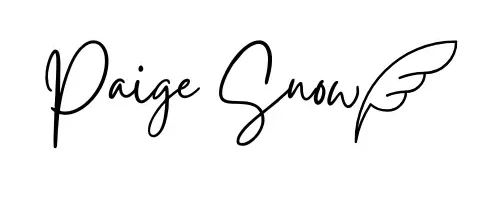A Field Guide to Grumpy People (And Why We Secretly Love Them)

There is a certain species of human that you can find in the wild, often in their natural habitats of hardware stores, dusty libraries, or the front seat of a slightly-too-old pickup truck.
They communicate primarily through a series of sighs, grunts, and the occasional, world-weary shake of the head.
They are the Lovable Grump with a Heart of Gold, and for some inexplicable reason, many of us find them utterly irresistible.
It’s a phenomenon that has left countless people staring at the ceiling at 2 a.m., asking the universe the eternal question: Why am I attracted to grumpy people?
It’s a valid question.
On paper, it makes no sense. We are taught to value cheerfulness, openness, and easy smiles.
Yet, many of us find ourselves drawn to the human equivalent of a cactus: prickly on the outside, but capable of surviving in the harshest conditions and, if you’re patient, producing a rare and beautiful flower.
My own fascination with this archetype was solidified by Mr. Abernathy, the proprietor of a used bookstore I frequented in my early twenties. He was a man seemingly constructed from tweed, dust motes, and disapproval.
He never said “hello.” He greeted you with a suspicious squint over his reading glasses, as if your very presence was a personal affront to the Dewey Decimal System. But I kept going back, and in doing so, I began to understand the secret language of the grump.
My Field Research: The Case of the Cantankerous Bookseller
Mr. Abernathy’s bookstore was a glorious fire hazard of towering stacks and narrow, winding aisles.
Asking him for help was a terrifying ordeal. He would let out a long, suffering sigh, as if you had just asked him to donate a kidney, before leading you silently to a dim, forgotten corner and pulling out the exact book you needed without a single word.
He never made small talk. He communicated in a currency of raised eyebrows and reluctant nods.
For months, this was the extent of our relationship. I was the annoying customer; he was the literary gatekeeper. I was convinced he hated me. Then one rainy Tuesday, I was in his shop, heartbroken over some trivial twenty-something drama.
I was trying to be discreet, but a tear escaped and plopped onto the cover of a worn-out paperback.
Mr. Abernathy saw it from behind his counter. I braced myself for a lecture on proper book care. Instead, he shuffled over, placed a steaming mug of what smelled like Earl Grey tea on a nearby stack, and laid a small, complimentary chocolate bar next to it.
He looked at me, gave a single, almost imperceptible nod, and walked away without a word.
It was, to this day, one of the kindest gestures I have ever received. It was a kindness that cost him something. It wasn’t easy or reflexive; it was a deliberate choice.
And in that moment, I understood.
The grumpiness wasn’t malice. It was a filter. It was a wall designed to keep the trivial world out, and if you were patient and sincere enough to get past it, you were granted access to the quiet, fiercely loyal world within.
A Scientific Classification of the Lovable Curmudgeon
This experience sent me down a rabbit hole. I started to see this dynamic everywhere, in life and in art.
It’s a classic case of opposites attract relationships, but it’s more nuanced than that. It’s about recognizing that a person’s exterior is not the whole story. Here is what my “field research” has uncovered.
1. The Protective Shell of Prickliness
For many grumpy people, their gruff exterior is a form of self-preservation. It’s not about pushing people away; it’s about letting the right people in.
In a world of superficial pleasantries and performative friendliness, their grumpiness is a sign of authenticity. They don’t have the time or the energy for nonsense. Dealing with difficult people like this requires a shift in perspective.
You have to understand that their silence isn’t an insult; it’s a comfort. Their lack of effusiveness is a sign that they don’t feel the need to perform for you. It’s a strange, backhanded compliment.
2. The Economy of Emotion
The Lovable Curmudgeon operates on a different emotional currency. They don’t trade in easy compliments or effusive praise.
Their currency is action, loyalty, and the rare, perfectly timed gesture. A kind word from a grumpy person is worth a thousand from a cheerful one because you know it has been carefully considered and sincerely meant.
Finding a connection with guarded people is about learning to read these subtle signals. It’s noticing the way they fix your broken fence without being asked, or the fact that they always remember exactly how you take your coffee. Their affection is shown, not told.
3. The Allure of the Unseen Depths
Let’s be honest, there’s a certain appeal to a puzzle. A person who is an open book is lovely, but a person who is a locked diary is intriguing. We are drawn to the grumpy person because we have a sense that still waters run deep.
We suspect that their cynicism is a shield for a secret romanticism, that their gruffness hides a profound well of kindness and integrity.
We want to be the one to earn their trust, to be granted the key. It speaks to our own desire to be seen for who we truly are, beyond our own carefully constructed exteriors.
This entire journey of looking past the surface is a fundamental part of the art of unbecoming; it’s about shedding our own preconceptions to see the truth in others, and in ourselves.
As a writer, it’s this secret heart of gold, the one you have to earn the trust to see, that made writing the scenes between the eternally optimistic Everly and the wonderfully grumpy farmer, Clay, in my novel Her Last Filter so much fun.
Their dynamic is built on this very principle: that two seemingly opposite people can find a common language, not in spite of their differences, but because of them.
The grumpy people of the world are the anchors. They are the ones who won’t flatter you, but they will always tell you the truth.
They won’t throw you a parade, but they will show up with a shovel in the middle of the night if you need to bury something (metaphorically, of course). They are a quiet port in a loud and chaotic storm, and that is something worth loving.
Who is the lovable curmudgeon in your life? I’d love to hear about the Mr. Abernathy you’ve known and the small, unexpected moment they showed you their heart of gold.


